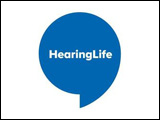The chief provincial public health officer advises that, to date, there have been no reported cases of severe illness in Manitobans or Canadians who have travelled from human swine flu affected areas.
The Manitoba government is working with health-care providers and organizations such as regional health authorities across the province to watch for and care for people with symptoms of flu-like illness. The symptoms of flu, such as fever, aches, tiredness and cough, usually begin within two to three days of contact with the virus and almost always begin within five days.
If a week has gone by since an individual left Mexico or other human swine flu affected areas and the individual does not have flu-like symptoms, that individual has no reason to worry about the possibility of having human swine influenza.
If an individual does develop flu-like symptoms, they may be contagious for up to a week. They should:
• Stay home from school or work and limit contact with others to reduce the chance of infecting them.
• Reduce the spread of germs by avoiding touching your eyes, nose or mouth, covering your cough by coughing into your elbow or sleeve or using a tissue, and by washing your hands frequently.
• Contacting your health-care provider or Health Links–Info Santé you are concerned that you may need care.
As with all infectious respiratory diseases, all Manitobans are encouraged to use routine precautionary measures.
• Cover a cough by coughing into your elbow or sleeve or using a tissue to cover your nose and mouth when you cough or sneeze.
• Wash your hands often with soap and water, especially after you cough or sneeze. Alcohol-based hands cleaners are also effective.
• Maintain your health by making healthy food choices, being physically active and getting enough sleep.
Federal rules require that all foreign workers coming to Manitoba have health-care coverage when they arrive in the province, either through their employer or the province.
Manitoba Health and Healthy Living is following up with the federal government and local union representatives to ensure there are no gaps for policies for health-care services for foreign workers.
The chief provincial public health officer and others from Manitoba Health and Healthy Living have been working to provide updated information to health professionals, the regional health authorities, health-care organizations, schools, universities, municipalities, First Nations communities, business and labour organizations, and the public through media interviews and website information.
In addition, the chief provincial public health officer and others from Manitoba Health and Healthy Living have sent letters to physicians, health-care providers, health-care organizations, schools, universities, municipalities, First Nations communities and business and labour organizations to provide information on the current human swine influenza situation. These letters are posted on the human swine flu website at www.manitoba.ca.
For links to more information, visit the human swine flu website at www.manitoba.ca. For personal advice on self-care or when to seek further care, Manitobans should contact their primary-care physician or other health-care provider or phone Health Links–Info Santé at 788-8200 or 1‑888‑315‑9257 (toll-free).
For current information on travel health notices, warnings and advisories, visit:
www.phac-aspc.gc.ca/tmp-pmv/pub-eng.php.



